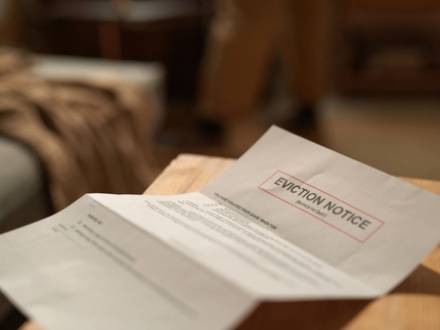 28 N. 1st St., Suite 101, Geneva, IL 60134
28 N. 1st St., Suite 101, Geneva, IL 60134
How Can a Tenant Challenge an Eviction for Non-Payment?
 One of the most common reasons landlords evict tenants is failure to pay rent. However, eviction is often a frustrating procedure that must follow a strict legal process. And even if that process is followed, tenants can still present legal challenges to the eviction.
One of the most common reasons landlords evict tenants is failure to pay rent. However, eviction is often a frustrating procedure that must follow a strict legal process. And even if that process is followed, tenants can still present legal challenges to the eviction.
Understanding the legal defenses a tenant can use is an important first step toward a successful eviction. In this article, we will discuss the eviction procedure and some of the legal arguments tenants can bring during the eviction process. For an effective eviction, consult an Illinois residential real estate lawyer who can guide you through the legal steps.
How Does the Eviction Process Work?
A landlord who wants to evict a tenant must follow a specific procedure that contains the following steps:
-
Notice: The landlord must serve the tenant with a written notice that the rent is past-due. The letter should also notify the tenant that he or she has five days to pay the rent or vacate the property. If the tenant does neither, the landlord will start the eviction process.
-
Court filing: After the five-day period, the landlord can file a petition with the court to evict the tenant, referred to as a forcible entry and detainer complaint.
-
Hearing: The court will schedule a hearing and serve a summons to the tenant ordering him or her to appear. The landlord and the tenant will both make their arguments in court.
-
Judgment: The judge will issue a ruling after the hearing based on the arguments and evidence.
-
Writ of possession: If the judge rules in favor of the landlord, the landlord will receive a writ of possession which can be given to the sheriff to forcibly remove the tenant.
Failure to follow this process exactly can delay an eviction and provide a defense for the tenant.
What Legal Defenses Does a Tenant Have Against Eviction for Non-Payment?
Tenants have rights and landlords have certain responsibilities under Illinois law. Therefore, even if a tenant owes rent, he or she can use these rights and responsibilities as arguments in court. For example:
-
The tenant withheld rent because the landlord failed to make necessary repairs after being notified.
-
The tenant withheld rent because the landlord failed to maintain utilities.
-
The landlord is evicting the tenant in retaliation for lodging a complaint with a government authority.
-
The tenant paid the rent during the five-day period.
-
The landlord did not follow the eviction procedure.
Any of the above arguments can be used to defend against an eviction, which is why it is important to have an attorney guide you through the eviction process.
Contact a Geneva, IL Landlord Representation Attorney
The longer an eviction process drags out, the longer you are missing out on rent. Attorney Deanna Aguinaga Walker understands the challenges landlords face with tenants and is ready to design a legal strategy to protect your interests. Schedule a free consultation with a Kane County, IL residential real estate lawyer about how to successfully evict a tenant for non-payment. Contact DLAW, PC by calling 331-222-7978 today.


 331-222-7978
331-222-7978

